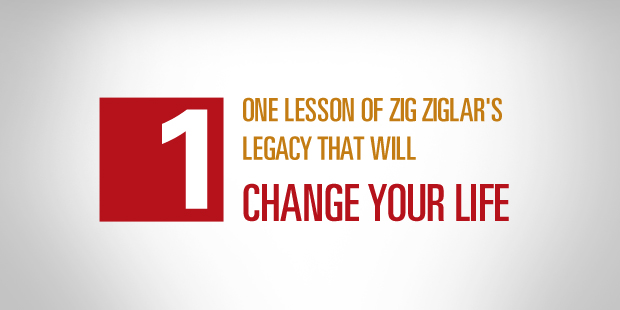
Growing as a Leader: Mentally
It doesn’t matter if you pastor a church, work in a high-pressure corporate environment, sell real estate, or toil as a full-time parent: the pace of our information-driven, globally-connected, twenty-first-century society forces us to accelerate down the tracks of modern life – and many of us feel dangerously close to flying off the rails.
We are multitasking ourselves into oblivion just to keep up. We push, we strive, and we overcome!
And then we collapse.
Can we keep this up?
Since the outward forces that exert stress on us are unlikely to disappear, our only choice is to look inward at ways we can better adapt to our environment.
Is it possible that we can “grow” to deal with the pressures we find ourselves in?
There is a short but powerful scripture passage that can give us guidelines in this area. Luke 2:52 says, “Jesus grew in wisdom and stature, and in favor with God and men.” (NIV)
THE QUICK SUMMARY
The ticket to a successful and fulfilling life is a significant upgrade to everyone’s ability to learn. Visionary teacher and lifelong learner Patricia McLagan views learning ability as software for processing daily life. And like all software, learning software requires upgrades—and regular reboots!
In Unstoppable You: Adopt the New Learning 4.0 Mindset and Change Your Life, McLagan shares her method for keeping learning powers sharp, ensuring that we can continuously advance and adapt in a nonstop world. We’re born with basic programming, which is learning 1.0. We then evolve and upgrade as we make our way through the education system in learning 2.0, and we start to self-manage how we learn as we integrate our diverse experiences and master skills in learning 3.0. That brings us to learning 4.0—learning mastery. This final upgrade equips us with survival skills for the 21st century— skills essential to meeting our goals in a world that’s always in motion.
Discover McLagan’s seven practices for effective lifelong learning—from hearing and heeding calls to learn, to taking steps to translate new skills into action. Unstoppable You also includes a complete toolkit of supporting templates, guides, and tips.
A SIMPLE SOLUTION – Unstoppable You by Patricia A. McLagan
You began an amazing learning journey the day you were born, and it continues to this day. While you may associate “learning” with your younger self, learning continues all throughout your life – or at least, it should.
In today’s fast-changing world, your learning skills need to be constantly “upgraded” in order to survive and thrive. If you think of how you learn as “software” you use in your daily life, you would recognize the need for upgrades just like the software and applications for your devices.
Imagine three learning software upgrades that have occurred so far in human history.
- Learning 1.0 is the basic program you were born with. It consisted primarily of trial and error learning by watching and imitating others.
- Learning 2.0 is the upgrade that took place in your school years. It consisted of learning how to study and directed learning toward goals others set.
- Learning 3.0 supports your continued growth in multiple areas of life by self-managed learning and helping skills.
Learning 4.0 is a necessary upgrade for surviving and thriving in our nonstop world. It is based on new knowledge of how our brains work, the new dynamics of a nonstop world, and an exploding information field.
Are you ready to become a 4.0 learner?
Think of yourself on a lifelong learning journey where you periodically upgrade your learning skills and approach. Are you ready to become a 4.0 learner?
Learning 4.0 is a necessary upgrade for surviving and thriving in our nonstop world. It is based on new knowledge of how our brains work, appreciation of the subjective, the new dynamics of a nonstop world, and an exploding information field.
Learning 4.0 is the upgrade that will keep you in charge of, rather than becoming a servant to, increasingly intelligent technologies as they emerge. Some of the special qualities of learning 4.0 include:
- Imagination
- Whole brain and whole body
- Self-transformation
- Deep learning
- Anywhere and anytime
- Smart use of information
- Resource versatility
- Change agency
- Co-evolution with technology
- Shared experiences
Patricia A. McLagan, Unstoppable You
A NEXT STEP
Imagine yourself being a 4.0 learner. See yourself using and directing your amazing brain, learning while awake and while you sleep, and keeping up with and a bit ahead of the changes in your work and life in general.
Unstoppable You author Patricia McLagan has developed seven practices of 4.0 Learners. Use the brief outline below to chart a new course to your learning journey.
Hear the Call to Learn – to make your need or interest explicit and be sure your learning motivation is clear.
- What is calling you or your team to learn?
- What change or development is it asking for?
Create Future-Pull – to create a learning direction that energizes and focuses your learning, creating a tension between the now and the future.
- What is the setting or situation?
- What are you feeling, seeing, thinking, hearing, sensing?
Search Far and Wide – to be sure that the information, resources, and experiences you use for learning are the best for you.
- Scan the information fields available for you to learn from.
- Keep a list of the learning experiences and resources you think will best help you move toward your future vision.
Connect the Dots – to provide the best structure for your learning so you stay focused on your future vision while remaining open to new calls to learning.
- Using the resources from the previous step, lay them out on a path leading toward your future vision.
- Add checkpoints to the journey to review your journey, revise your vision, appreciate progress, and solve problems.
Mine for Gold – to bring useful information into your brain’s short-term memory.
- Set up your learning environment so that it will be conducive to success.
- Be present to learn, managing your energy and motivations.
Learn to Last – to convert what you are learning into long-term capabilities including remembered knowledge and creative outcomes.
- Retain what you want to remember.
- Develop skills and habits.
- Shift beliefs and attitudes.
- Learn for creative insights.
Transfer to Life – to take extra steps to bring your learning to life and sustain it for the longer-term.
- Set up for success.
- Get allies.
- Celebrate success.
Excerpt taken from SUMS Remix 105-1, released November 2018.
This is part of a weekly series posting excerpts from one of the most innovative content sources in the church world: SUMS Remix book excerpts for church leaders.
SUMS Remix takes a practical problem in the church and looks at it with three solutions; each solution is taken from a different book. Additionally, a practical action step is included with each solution.
As a church leader you get to scan relevant books based on practical tools and solutions to real ministry problems, not just by the cover of the book. Each post will have the edition number which shows the year and what number it is in the overall sequence. (SUMS Remix provides 26 issues per year, delivered every other week to your inbox).
> > Subscribe to SUMS Remix <<

Tags: 4.0 Learner, Learning, Patricia A. McLagan, SUMS Remix, Unstoppable You



















